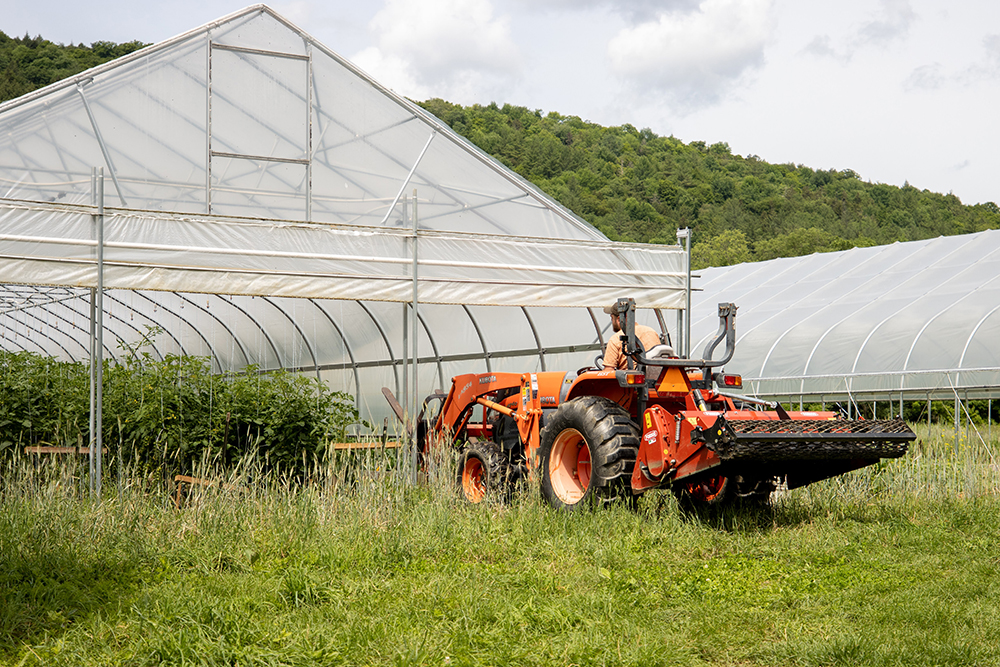‘Mechanisation is luxury for rural farmers’
A female graduate farmer based in Ogun State, Ms Ruth Bose Suberu, has described mechanisation as a luxury in agriculture that is far from rural farmers. She also identified lack of access to loan, labour and foreign exchange as some of the factors killing female farmers in Nigeria. Speaking with Daily Trust on Sunday, Suberu, […]

a farmer drives a tractor inside a high tunnel.
A female graduate farmer based in Ogun State, Ms Ruth Bose Suberu, has described mechanisation as a luxury in agriculture that is far from rural farmers.
She also identified lack of access to loan, labour and foreign exchange as some of the factors killing female farmers in Nigeria.
Speaking with Daily Trust on Sunday, Suberu, who is also a graduate of History and International Studies from the Lagos State University (LASU), emphasised the need to address some challenges confronting female farmers.
She said, “Mechanisation seems far from most rural farmers in Nigeria. It is luxury, a thing for the rich. There’s no access to tractors in most farming locations, no irrigation systems for consistent production.”
- IAR gets better greenhouse facility for seed storage, production
- Dry season: Kano rice farmers decry high cost of inputs
Speaking on challenges, Suberu said, “Access to loan for expansion is one major challenge female farmers are facing. It is either a lender’s interest rate is high or they are asking for what “she does not have” as collateral.
“The climate is another major challenge as the seasons have become unpredictable. It is becoming scary to invest the little resources available as most people do not have access to grants.
“Prices of inputs are increasing on a daily basis. The nutrients applied to plants determine the yield. The level at which pests and diseases are controlled also contribute to the yield of any crop, but high cost has made it almost impossible for farmers to get the best from their labour. Imagine that a plant which requires a weekly application of nutrients to give full potential yield had only two or three applications; yield will be limited.
“Labour is another challenge women are facing in farming. And there has been an increased migration of youths from rural areas to the cities, and those available either want too much as wages or a quick means of making money.
“Foreign exchange has greatly affected prices of inputs. For example, fertilisers are almost out of the reach of smallholder farmers as the price increases almost on a daily basis. Other inputs like pesticides, herbicide and fungicide are not left out.”
She called on the government to support farmers to “end hunger and give them grants and loans to boost food production.”
“Even those who have a means of irrigation are faced with huge challenge as the price of fuel has increased,” she added.
